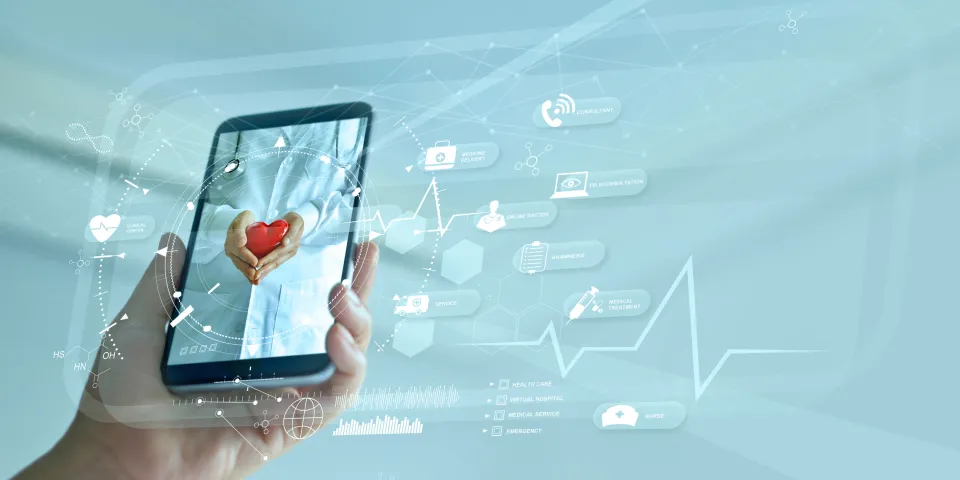Latest
The Unsung Heroes of Healthcare: How Cybersecurity Professionals Keep Hospitals Safe
Jan 17, 2023

In every action movie or television series, the team of heroes has their personal “technology pro” whose skills help save the day in an otherwise hopelessly dire situation. In real life, healthcare teams aren’t all that much different. Hospitals are made up of a variety of healthcare “heroes” who play integral roles in supporting the more high-profile doctors and nurses to ensure high-quality care is provided to everyone in their community. These unsung heroes include highly trained individuals whose expansive knowledge of technology keeps hospitals running safely and smoothly: cybersecurity professionals.
If you’re someone who likes to stay behind the scenes and wants to play a less traditional, yet no less impactful position in a hospital environment, you should consider a career in cybersecurity. It may not come with a cape or emblem, but you’ll be a hero just the same.
The Crucial Role of Hospital Cybersecurity
In an age where healthcare is increasingly reliant on technology, cybersecurity plays an integral role in hospitals. Now more than ever, hospitals depend on specialized systems and emerging technologies to secure information and maintain the machines patients rely on. Because these systems possess so much sensitive information, they are especially vulnerable to cyberattacks.
Personal information such as social security numbers, bank information, and medical histories are all at risk of being hacked due to their high value. In 2022, it was reported that stolen health records can sell for 10 times more than stolen credit card numbers on the dark web. Not only are these attacks detrimental to the hospital, they directly affect patients and the quality of their care. Across the healthcare industry, approximately 17% of cyberattacks in 2021 resulted in significant patient harm or injury. Especially in recent years when, due to the coronavirus pandemic, hospitals and healthcare are already feeling unexpected stress to their systems, the lingering threat of an attack on technology is one they want to minimize wherever possible.
Responsibilities of a Cybersecurity Professional
A cybersecurity analyst's primary responsibility is to protect a company's network and systems from internet threats. This involves:
- Creating backup strategies
- Examining suspicious activities
- Implementing security controls and threat protection measures
- Instructing the rest of the company on security procedures
- Managing system resets and security breaches
- Reporting security flaws
- Researching future IT trends
Skills for Success
Because cybersecurity professionals work in fast-paced environments with state-of-the-art technology, they must possess specific valuable skills to ensure they can fully support their team.
Some must-have skills for cybersecurity professionals are:
- Coding skills (e.g. Java, Ruby, Python, Perl, and C++)
- Data management skills
- Proficiency in information technology
- Strong analytical skills
Being a successful cybersecurity professional requires more than just a strong set of hard skills—you need an equally strong set of soft skills. In an ever-evolving field like technology, it’s important to be inquisitive and adaptive to emerging technology. Attention to detail is another must-have skill for cybersecurity professionals, as it ensures that your work is accurate and trustworthy. Not only will you have to be attentive, but you’ll also have to analyze information to create the best plan of action and defense against potential threats. Be confident in your instincts and abilities. You are being trusted to keep others safe, so there is no room to crack under pressure!
How to Become a Cybersecurity Professional
Demand for cybersecurity professionals is projected to grow more than 35% by 2031 making it an ideal time to pursue this impactful career path. To qualify to work in a hospital’s IT or cybersecurity department, you must first earn your degree. Luckily, schools like Herzing University offer comprehensive cybersecurity programs that allow you to graduate with a degree in as little as three years and provide the crucial upskilling opportunities you’ll need to stay ahead in a field where systems and threats advance on a yearly, monthly, and daily basis.
Like all Herzing University programs, the online cybersecurity degree and certificate programs offer career-focused education developed specifically for busy adult learners. The healthcare industry requires tech-savvy heroes to join the fight and protect our local hospitals; are you prepared to answer the call? Learn more about how a degree in cybersecurity can transform not only your life but the lives of others today.
Learn More About Our Cybersecurity Programs
Bureau of Labor Statistics (BLS), U.S. Department of Labor, Occupational Employment and Wage Statistics 2023 / Occupational Outlook Handbook 2022. BLS estimates do not represent entry-level wages and/or salaries. Multiple factors, including prior experience, age, geography market in which you want to work and degree field, will affect career outcomes and earnings. Herzing neither represents that its graduates will earn the average salaries calculated by BLS for a particular job nor guarantees that graduation from its program will result in a job, promotion, salary increase or other career growth.
Latest
Recent Blog Posts
Subscribe to our Newsletter
Get the latest news you need to know, from study hacks to interview tips to career advancement. Have it delivered right to your inbox biweekly.








